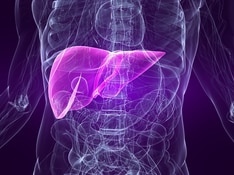An analysis of posts on TikTok about cirrhosis finds that approximately 40% of these posts include misinformation, according to a study presented at the annual Digestive Disease Week® (DDW).
TikTok's short video format is increasingly becoming a major source for news and information, especially for adolescents and young adults. In 2022 the technology news website The Verge reported that about 10% of all U.S. adults regularly get news from TikTok, including an estimated 26% of adults under 30.
"Our study highlights the alarming prevalence of misinformation related to liver disease and cirrhosis on the TikTok platform. This misinformation can potentially lead to harm and poor health outcomes for individuals seeking accurate information about their conditions," wrote the study authors in their abstract.
The study, which was led by Macklin Loveland, MD, an internal medicine resident at the University of Arizona, Tucson, found that, among 2,223 TikTok posts related to liver disease or cirrhosis as of November 2022, 60.3% were found to have accurate medical information, but the remaining 39.7% contained misinformation.
Some of the misinformation offered highly dubious and potentially dangerous advice, such as "Reishi mushrooms can reverse liver damage," when in fact there is evidence to suggest that reishi mushrooms, especially in powder form, may be toxic to the liver and may even cause fatal fulminant hepatitis.
In an interview, Dr. Loveland said that much of the good information about liver disease on TikTok seems to come from patients with cirrhosis or other liver diseases who post videos chronicling their experiences, whereas bad information seems to come from people who are trying to pitch a product such as "natural" or "alternative" medicine.
"People who have real-life, firsthand experiences with cirrhosis have a really nice platform to talk about their disease process and share information with other people with similar disease processes, and the majority of them are accurate," he said. "Where the inaccuracies come in are when people are trying to profit off a product or sell a dietary supplement, and then things go by the wayside."
It's important for TikTok users to understand the intentions of other users, he said, and expressed the hope that content mediators within TikTok would help to keep misinformation at bay.
Skyler B. Johnson, MD, assistant professor of radiation oncology at the University of Utah Huntsman Cancer Institute, Salt Lake City, has studied misinformation about cancer on social media, and as he and colleagues reported in the Journal of the National Cancer Institute, of 200 articles on cancer posted on social media sites, 32.5% contained misinformation and 30.5% contained harmful information.
In an interview, Dr. Johnson, who was not involved in the study by Dr. Loveland and colleagues, offered advice for colleagues about countering misinformation.
"What we're trying to do, as part of our research group, is encourage physicians to take an active role in addressing misinformation with their patients and also in their social networking interactions," he said. "When I see a new patient with a new diagnosis of cancer, I warn them that they're going to encounter things online that may or may not be true."
He noted that, often when physicians instruct patients not to go online to research their disease, the first thing the vast majority of patients do after leaving the office is to jump online.
Instead, Dr. Johnson recommended inoculating patients against misinformation – not to discourage them from going online, but to inform them about the myriad good and bad information sources, and steer them toward trustworthy sites such as government agencies (the National Institutes of Health, Centers for Disease Control and Prevention, etc), academic medical center sites, or select nonprofit organizations, foundations, and medical associations.
"But at the end of the day, even those you have to be somewhat vigilant about, because there are some unscrupulous providers who exploit even those sites," he added.
Study details
Dr. Loveland and colleagues used the TikTok search engine to look for posts containing the terms "cirrhosis" and "liver disease," and watched all such videos that turned up in the search from beginning to end. They classified each post as either educational in intent or whether it depicted a firsthand experience with liver disease.
They determined whether each post was accurate or erroneous according to guidelines from the American Association for the Study of Liver Disease, American College of Gastroenterology, and American Gastroenterological Association. They also recorded the number of likes, comments, and the number of times that each video was shared.
Accurate posts were viewed and liked significantly more often than inaccurate ones, and accurate posts had significantly more comments that faulty posts.
However, both accurate and inaccurate posts were shared a similar number of times, suggesting that bad-quality information can metastasize just as easily as good information can be disseminated.
Dr. Loveland and colleagues echoed the recommendations of Dr. Johnson, stating that "health care provides should be aware of the potential for misinformation on social media and should strive to provide their patients with accurate and evidence-based information to inform their health care decisions."
The study was internally funded. Dr. Loveland and Dr. Johnson reported having no conflicts of interest to disclose.
DDW is sponsored by the American Association for the Study of Liver Diseases, the AGA, the American Society for Gastrointestinal Endoscopy, and The Society for Surgery of the Alimentary Tract.
This story originally appeared on MDedge.com, part of the Medscape Professional Network.
Credits:
Lead image: Prykhodov/Dreamstime
Cite this: Analysis: 40% of Info About Cirrhosis on TikTok Is Incorrect - Medscape - May 18, 2023.











Comments